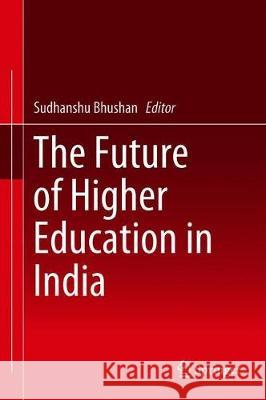The Future of Higher Education in India » książka
topmenu
The Future of Higher Education in India
ISBN-13: 9789813290600 / Angielski / Twarda / 2019 / 328 str.
The Future of Higher Education in India
ISBN-13: 9789813290600 / Angielski / Twarda / 2019 / 328 str.
cena 402,53
(netto: 383,36 VAT: 5%)
Najniższa cena z 30 dni: 385,52
(netto: 383,36 VAT: 5%)
Najniższa cena z 30 dni: 385,52
Termin realizacji zamówienia:
ok. 22 dni roboczych.
ok. 22 dni roboczych.
Darmowa dostawa!
Kategorie:
Kategorie BISAC:
Wydawca:
Springer
Język:
Angielski
ISBN-13:
9789813290600
Rok wydania:
2019
Dostępne języki:
Ilość stron:
328
Oprawa:
Twarda











